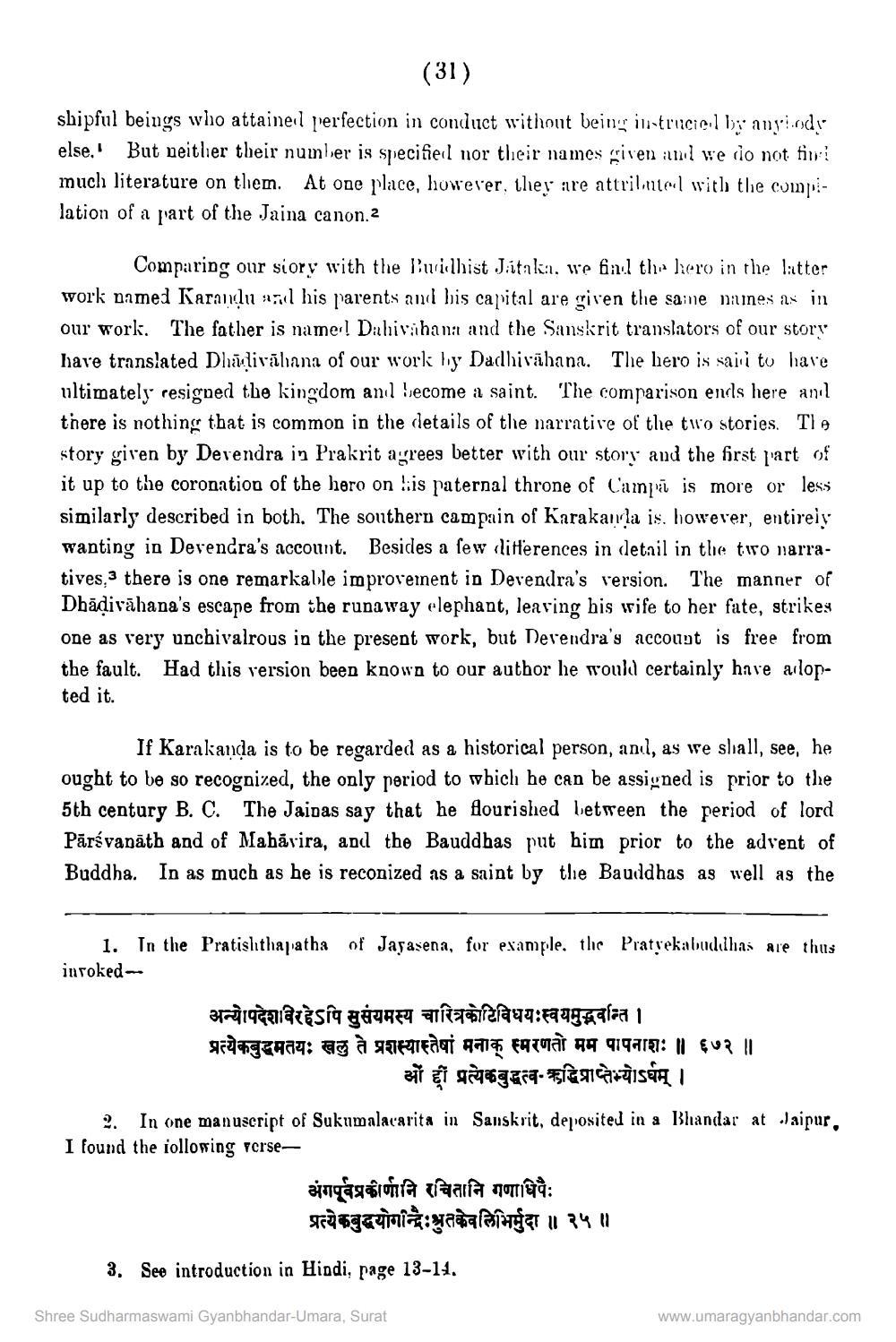________________
(31)
shipful beings who attaineil perfection in conduct withont being in-truciel by anyindi else. But neither their numer is specified nor their names viven im we dio not fimi much literature on them. At one place, however, they are attrilitel with the compilation of a part of the Jaina canon.2
Comparing our siory with the Buidhist Jitak:1. we find the hero in the latter work named Karanu i his parents and his capital are given the saine nines as in our work. The father is namer! Dahivahana and the Sanskrit translators of our story have translated Dhā divāliana of our work by Dadhivāhana. The hero is sai i to have ultimately resigned the kingdom anil lecome a saint. The comparison ends here anil there is nothing that is common in the details of the narrative of the two storie story given by Devendra in Prakrit aurees better with our story and the first part of it up to the coronation of the hero on his paternal throne of Camā is more or less similarly described in both. The southern campain of Karakayla is, however, entirely wanting in Devendra's account. Besides a few clifferences in detail in the tiro barratives, there is one remarkable improvement in Devendra's version. The manner of Dhādivāhana's escape from the runaway elephant, leaving his wife to her fate, strikes one as very unchivalrous in the present work, but Derendra's account is free from the fault. Had this version been known to our author he would certainly have allonted it.
If Karakanda is to be regarded as a historical person, anıl, as we shall, see, he ought to be so recognized, the only period to which he can be assigned is prior to the 5th century B. C. The Jainas say that he flourished between the period of lord Pārsvanāth and of Mabăvira, and the Bauddhas put him prior to the advent of Buddha. In as much as he is reconized as a saint by the Bauddhas as well as the
1. In the Pratishthapatha of Jayasena, for example, the Pratrekabuddhas Ale thus inroked
अन्योपदेशाविरहेऽपि सुसंयमस्य चारित्रकोटिविधयःस्वयमुद्भवन्ति । प्रत्येकबुद्धमतयः खलु ते प्रशस्यास्तेषां मनाक् स्मरणतो मम पापनाशः ॥ ६७२ ॥
ओं ही प्रत्येकबुद्धत्व- ऋद्धिप्राप्तेभ्योऽर्घम् ।
2. In one manuscript of Sukumalauarita in Sanskrit, deposited in a Bhandar at Jaipur. I found the collowing Ferse
अंगपूर्वप्रकीर्णानि रचितानि गणाधिपः प्रत्येकबुद्धयोगान्दैःश्रुतकेवलिभिर्मुदा ॥ २५ ॥
3. See introduction in Hindi, page 13-14.
Shree Sudharmaswami Gyanbhandar-Umara, Surat
www.umaragyanbhandar.com




